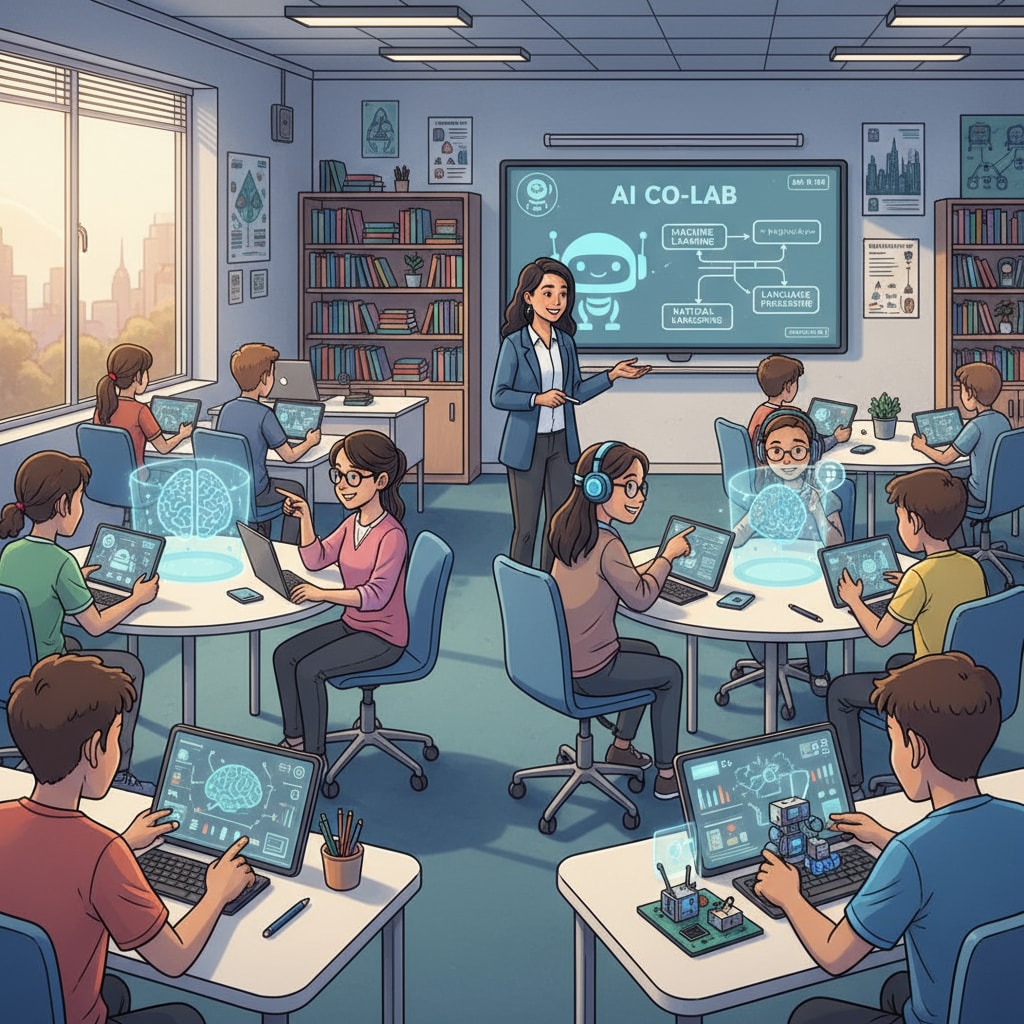AI education, prompt writing, and future courses are set to revolutionize the educational landscape. The rapid advancement of artificial intelligence has made it essential for students to develop a solid understanding of this technology. In this article, we will explore the potential AI professional courses in the future, their educational significance, and how they will shape the core competencies of students.
The Rise of AI in Education
AI has already made its mark in education as an effective teaching tool. It can personalize learning experiences, provide instant feedback, and offer resources tailored to individual students’ needs. However, the future may see AI evolving from a supportive element to a distinct subject of study. As technology becomes more integrated into our daily lives, understanding AI is no longer a luxury but a necessity for students.

Potential AI Professional Courses in K12 Education
In the future, K12 education might introduce a comprehensive AI curriculum. This could include courses on the basics of AI, such as understanding algorithms and machine learning concepts. Another important aspect could be prompt writing, which is essential for communicating effectively with AI systems. Students would learn how to formulate clear and precise prompts to obtain accurate and useful results from AI tools. For example, they might study how to write prompts for image generation or natural language processing tasks.

Moreover, courses could focus on ethical considerations in AI. As AI systems become more autonomous, it’s crucial for students to understand the potential impact on society, including issues like bias, privacy, and security. They would learn how to make responsible decisions when developing or using AI technologies.
The Educational Significance of AI Courses
These AI courses hold great educational value. Firstly, they cultivate critical thinking skills. Students will need to analyze complex AI algorithms, evaluate the performance of AI models, and think creatively to solve problems related to AI development. Secondly, they enhance technological literacy. In a world driven by technology, being proficient in AI gives students a competitive edge in the job market. It also enables them to adapt to the changing technological landscape.
In addition, AI courses promote collaboration and communication. Working on AI projects often requires students to collaborate with peers, share ideas, and present their findings. This helps develop their teamwork and communication skills, which are essential for success in any field.
Implementing AI Courses: Challenges and Solutions
Implementing AI courses in K12 education does come with challenges. One major hurdle is the lack of trained teachers. To address this, professional development programs can be organized to upskill educators in AI. Another challenge is ensuring equitable access to resources, as not all schools may have the necessary infrastructure for AI education. Initiatives can be taken to provide schools with the required hardware and software, such as AI labs and online learning platforms.
Despite these challenges, the benefits of AI education are undeniable. As we look towards the future, integrating AI courses into the curriculum will be a significant step in preparing students for a technology-driven world.
Readability guidance: This article uses short paragraphs and lists to summarize key points. Each H2 section provides a clear focus, and the passive语态 is used sparingly. Transition words like “however,” “therefore,” “in addition,” and “for example” are used throughout to enhance readability and flow.


